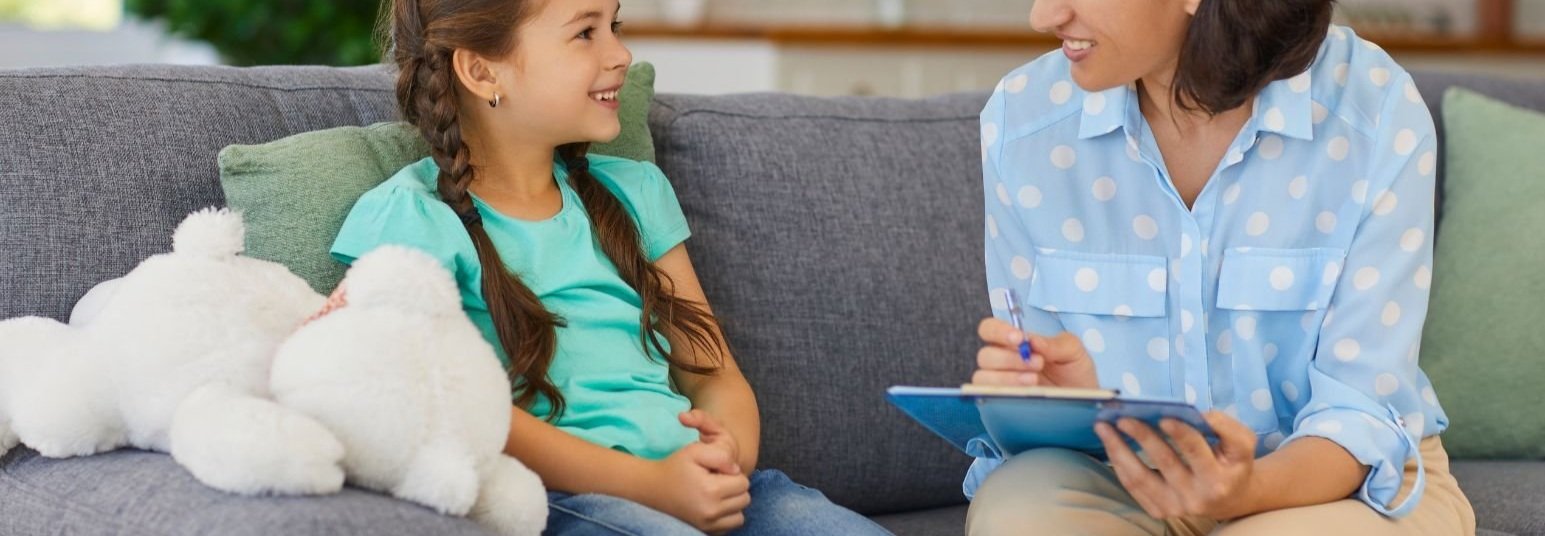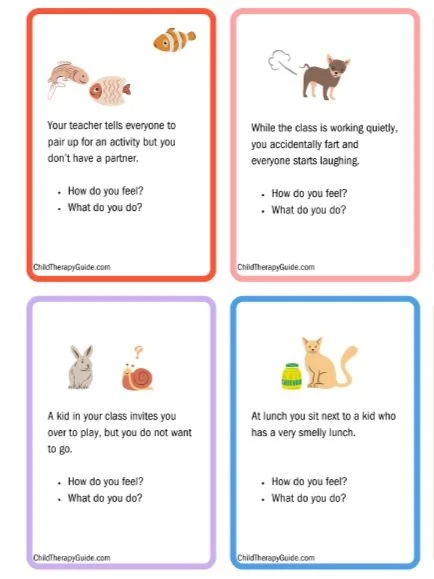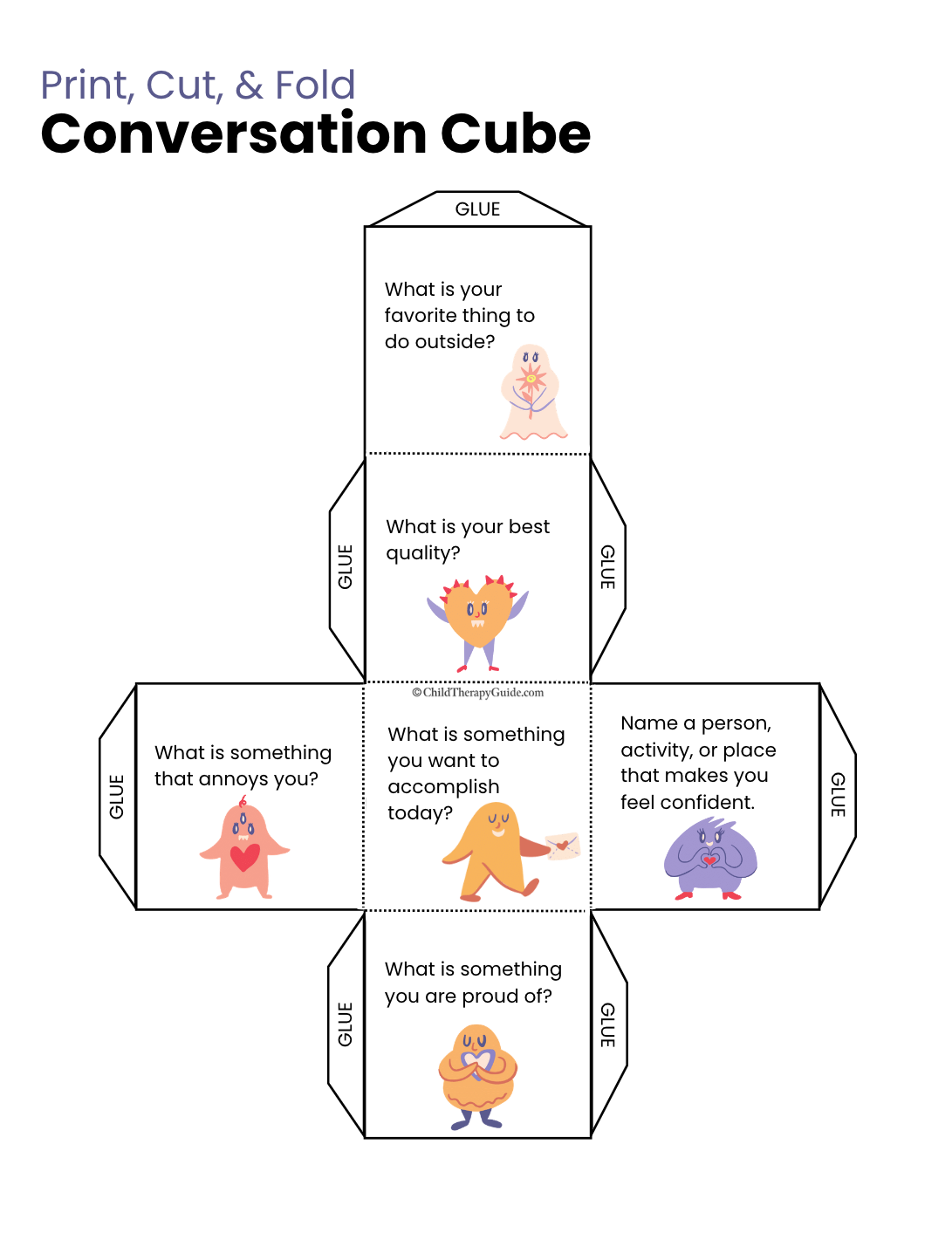
CONVERSATION STARTERS
Conversation starters help kids take new perspectives, explore values and motivations, and develop essential communication skills. Our collection of printable conversation starters includes written and visual prompts to encourage inclusive connection through different mediums.
© 2025 COPYRIGHT NOTICE: All original resources, content, and materials produced and displayed on this website are the intellectual property of Child Therapy Guide. These resources are protected by copyright laws and are intended for personal, non-commercial use. Unauthorized reproduction, distribution, or any other unauthorized use of the content without explicit permission from Child Therapy Guide is strictly prohibited. Users are encouraged to enjoy and utilize the resources responsibly, respecting the copyright and intellectual property rights associated with the content. For any inquiries or requests regarding the use of our materials, please contact us through our contact form.
-

Is it a Fact or an Opinion?
Sorting fact from opinion sounds simple, but our self-perception can stubbornly shape the way we internalize passing thoughts.
For this reason, it is important to help kids challenge their thoughts to build a more resilient outlook. In this trio of worksheets, kids are encouraged to consider the statements and decide if they are fact or opinion.
-

What's the Plan? (for Kids with Sensory Processing Needs)
Kids with sensory processing disorders often benefit from feeling prepared and supported. When possible, ask kids how they would like to handle difficult situations and how they would like to be supported. This worksheet offers a framework to talk to kids before entering potentially overwhelming situations.
-

Would You Rather...?
This or that? Use these question prompts to encourage kids to consider their preferences, needs, and personal moral codes.
-

Social Skills: Scenario Prompts
Scenario prompts can help kids feel prepared for and supported through social challenges. By presenting realistic situations for their consideration, these prompts encourage kids to problem-solve, explore emotions, and examine different perspectives.
-

Is it JUST anger?
A significant part of anger management is understanding the roots of our anger. The examination of anger contributes to self-empathy and allows for the utilization of targeted coping skills.
-

Conversation Starters for Teens
Effective communication during adolescence builds mutual trust, understanding, and respect. This kind of communication allows parents to better recognize cues and attend to the needs of their teenager.
There are so many things we don’t know about the people closest to us. Try these open-ended prompts to explore new territory!
-

20 Question Prompts for Dinner Conversation
Gathering around the table for a meal creates a dedicated time for family members to come together, share their experiences, and strengthen bonds. Question prompts are a great way to get the conversation started!
-

Scenario Cards: Home
Home-based scenario cards help kids process social, emotional, and moral dilemmas while building empathy and coping skills.
-

Scenario Cards: School
School-based scenario cards help kids think and talk about the complex issues that may arise outside of the home.
-

Question Tabs
These question tabs could be used for a variety of games to engage kids in conversation. Our favorite variation is to print, trim, and adhere the question tabs onto Jenga blocks—answer questions while you play!
-

Foldable Fortune Teller: Check-In
This foldable fortune teller is a fun and engaging way to do a daily check-in with kids. We also encourage kids to use it with each other to build meaningful interpersonal bonds!
-

20 Question Prompts for Classroom Conversation
Use conversation prompts to encourage students to share their perspectives through meaningful discussions. Well-crafted conversation starters contribute to a dynamic classroom atmosphere where students feel comfortable expressing their ideas and collaborating with their teachers and peers.
-

What's the Plan?
Talking points to create a collaborative game plan.
Parties or social gatherings often alter our daily routines. This can be especially disruptive to young kids. With anticipated disruptions in mind, these conversation starters promote social skills, confidence, problem-solving, and emotional regulation by helping kids feel heard, understood, and excited about the possibilities that lie ahead. Preparedness in kids (and adults!) contributes to overall well-being and can significantly reduce dysregulated feelings and behaviors.
Try these talking points on the commute to a birthday party or social gathering and observe the positive effects of collaborative preparedness!
-

Conversation Cube
Print, cut, and fold this template to create an interactive way to talk to kids. This cube has open-ended question prompts to encourage kids to explore their emotions, values, and circumstances.
-

Talk About It!
There are no wrong answers when using pictures to prompt discussion with kids! These visual scenarios help kids build empathy and healthy communication skills.

Why are conversation starters helpful?
They promote important skills that improve social, emotional, behavioral, and psychological health.
Communication Skills: Encourage kids to articulate their thoughts clearly and effectively.
Active Listening: Uphold the expectation that kids engage in reciprocal conversation, which means they must attend to the responses of others.
Critical Thinking: Use thought-provoking prompts to encourage kids to use critical analysis to form well-reasoned opinions and responses.
Empathy: Exercise empathy by teaching kids to listen to, consider, and appreciate different perspectives.
Social Skills: Necessitate that kids navigate conversations, take turns, and engage with others in a positive and respectful manner.
Self-Expression: Build confidence and emotional intelligence by sharing thoughts and feelings with others.
Language Development: Introduce kids to new words, scenarios, patterns, and concepts.
Bonding: Encourage open and authentic conversation to help kids gain relationship-building skills and the ability to nurture a sense of connection and understanding with others.
In educational, therapeutic, and social settings, conversation starters improve interpersonal and cognitive functioning while promoting social engagement and development.
